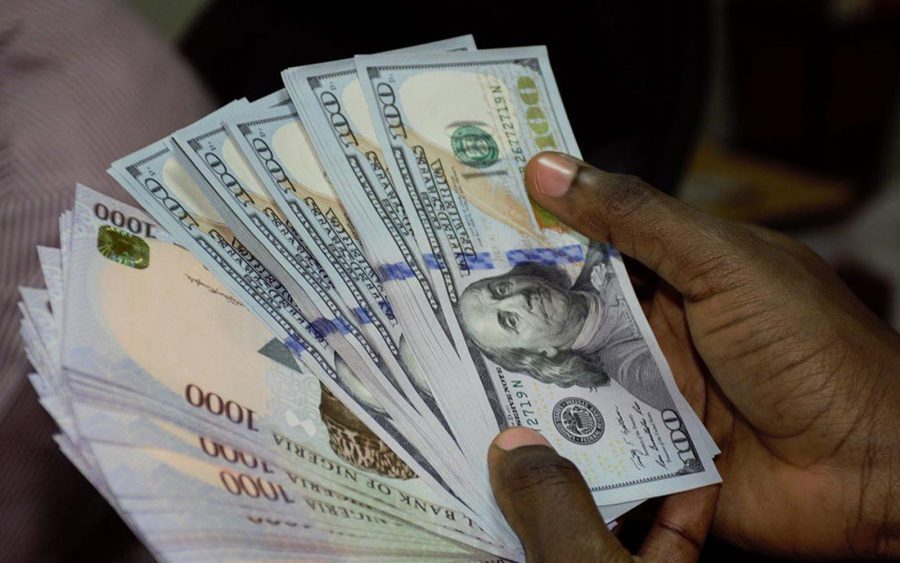CBN, save the Naira now
It is now about 60 days since the Central Bank of Nigeria (CBN) reversed its policy on the sale of foreign currencies to Bureau De Change (BDC) operators, a move that banks chief executive officers supported by reinforcing their readiness to fill the gap. Though the policy received mixed reactions from the public, many were […]

It is now about 60 days since the Central Bank of Nigeria (CBN) reversed its policy on the sale of foreign currencies to Bureau De Change (BDC) operators, a move that banks chief executive officers supported by reinforcing their readiness to fill the gap. Though the policy received mixed reactions from the public, many were hopeful that it would help arrest the fall of the naira which was between N490 and N504 to a dollar at that time.
However, that has not happened. In fact, the outcome is bizarre, as the naira has been on a persistent slide, trading at N565/USD at the parallel market as at close of business on Thursday, September 16, 2021. This has given rise to speculations that the policy was a fire-brigade approach to the problem instead of a well-thought-out solution as expected from the apex bank. The fall of the naira and subsequent loss in value has left many citizens in a state of panic as the attendant effect is the high cost of goods and services.
Following that change in policy, the CBN, which is constitutionally charged with the responsibility of maintaining the value of the national currency, asked banks to take up the duty of selling foreign currencies.
Ironically, the duty handed over to the banks seems to have been muddled up by the operators. Within this period, the national currency has been involved in a free fall. From its exchange value of N504/$ on July 27, 2021, when the CBN abrogated the sale of foreign currencies to BDCs to yesterday, September 16, the value of the naira has plummeted to N565/$, on the parallel market, a whopping 9.5 per cent loss in the value of the currency in less than two months. This indeed is cause of concern for any serious government and urgent action to reverse the trend is required.
Indeed the CBN on various occasions warned banks’ staff against getting involved in indecent forex transactions, with threats of exposing anyone caught. However, it is important to check if banks are fully empowered to fill the gap of the BDCs. It appears as if the banks were only asked to take over the role of BDCs, but not adequately empowered and prepared to do so, especially as regards the demand for forex from individuals and corporate organisations. For instance, banks do not sell forex to importers of building materials, yet these items are imported almost on a daily basis and need to be paid for in foreign currency, so those involved rely on the parallel market to meet that demand.
The CBN must, therefore, rise to its responsibility of stabilising the naira. There must be a way to find the right value to the naira. Over the years, some economists and analysts have criticised the multiple exchange rates that the monetary authorities have allowed to co-exist. But the regulator and its officials have always resorted to semantics, arguing each time that what obtains in Nigeria is not a case of multiple exchange rates, but various windows at which forex can be obtained at different rates for different purposes.
Yet, this argument has always fallen flat as it does not seem to address transparency and true price discovery challenges in the market, particularly as it simply creates tendencies for arbitrage in the financial market. In a situation where participants can buy an item in a part of the market and turn to another to sell at a higher price without adding any value, price segmentation becomes ineffective.
That is why the problem of round-tripping has refused to go from the financial system. It is also responsible for the challenges that the CBN and the banks are having now in implementing the sale of forex through banks.
The crisis must, therefore, be addressed on two levels: a short-term measure that can ensure a smoothening in the market now and help stabilize prices.
The current level of uncertainty is unhealthy for an economy that is expected to sustain the positive growth achieved in the second quarter. Virtually all segments of the economy have been impacted quite negatively by the increasing slide of the naira’s value. We can’t continue with the same policy and expect different results. The CBN needs to do more. It should work with experts to tackle this situation. It appears all its policies as regards forex have been trial and error. That needs to stop. Nigeria’s economy cannot handle it.
The federal government should immediately direct the CBN to explore all legal options to reverse this trend as it is unacceptable.
